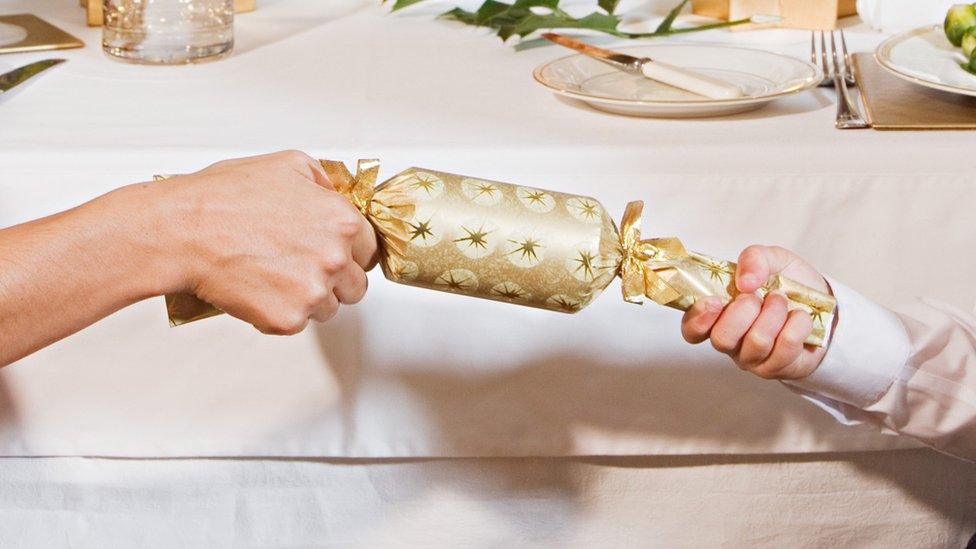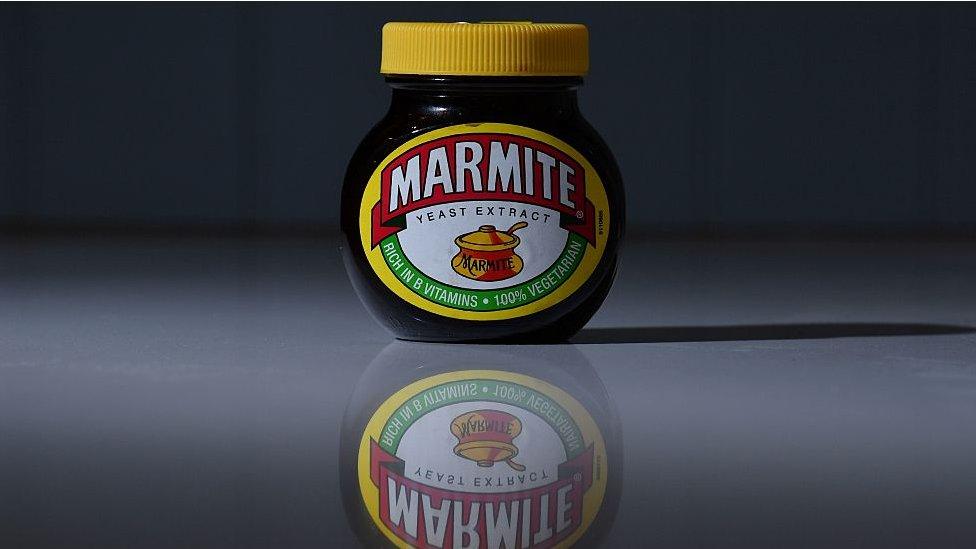Christmas dinner costs 'rise 14%'
- Published

Christmas cracker prices have risen
A basket of Christmas food has increased 14% on last year with the cost of many items from non-discount supermarkets rising above inflation.
Analysis shows a typical list of 12 items would come to £64.25 to cater for six people.
That works out at a cost of £10.71 per person compared with £9.41 in 2015.
Separate research by Good Housekeeping found shoppers could get a bargain on Christmas food if they were prepared to shop around.
Prices were affected by uncertainty caused by the UK's Brexit vote to leave the European Union, as well as normal economic forces as markets readjust following several years of deflation, analysts said.
Analysis by the BBC's England data unit, using figures provided by mySupermarket, found average prices for turkeys, red wine, potatoes and sprouts have all risen above inflation.
For more stories from the BBC England Data Unit follow our Pinterest board., external
And figures show the cost of a box of crackers has gone up 41% since 2015 with an average box costing about £10.90, compared with £7.73 a year earlier.

Isn't Christmas meant to be getting cheaper?
The cost of a Christmas dinner is really all about how much shoppers are prepared to pay.
Figures from Good Housekeeping suggest it is possible to feed 8 people for under £20, or £2.48 a head if people shop around and get, for example, their turkey from Asda, sprouts from Aldi, mince pies from Lidl and Christmas cake from Iceland. The magazine says the prices of different Christmas dinner essentials are now 10.8% down since 2009.
However, consumer director Caroline Bloor says the overall cost reduction is down to the big discounters such as Aldi and Lidl. Its figures also look at the cheapest possible options.
The figures from mySupermarket do not take into account discount supermarkets such as Aldi or Iceland but concentrate on the bigger stores, the likes of Tesco, Asda, Sainsbury's and Morrisons, who are still seen as controlling the UK shopping scene. Their trolley of goods is also based on averages across different stores and categories of products, rather than shopping around.

Experts said people would find the overall cost of Christmas "stable" thanks to a price war between supermarkets resulting in discounts on other items.
Separate analysis by commodity data expert Mintec found weaker Sterling rates had pushed up the price of raisins, butter and milk, all of which added to a rise in the cost of a Christmas pudding.

Quantities are based on those recommended by BBC Good Food, external except for Christmas pudding, which is a standard size in supermarkets, and wine, which was based on having enough to give everyone two 125ml glasses.

Despite the rise, sprouts have not reached the peak, external experienced in 2010 when a hard frost resulted in a shortage and sent prices soaring to £9.56 a kilogram. And the overall cost of dinner is still cheaper than that year, when the same goods would have come to more than £77.
Gilhad Simhony, chief executive of mySupermarket said: "Despite Brexit, inflation worries and other current affairs it looks like the price war between supermarkets is keeping the cost of Christmas stable.
"Many items have risen in price beyond inflation expectations, but shoppers are still able to make a saving on their Christmas basket by taking advantage of offers and the fierce competition between retailers."
There were warnings that retailers may hike prices in January as they had been left with little "wiggle room" following the fall in the value of sterling.
Steven Dresser, analyst at Grocery Insight, said: "Since the EU referendum there's been a lot of uncertainty and that doesn't help anyone. The value of sterling has fallen, which makes imported goods more expensive.
"A lot of crackers are made in the Far East. Anything imported from the Far East will go up in cost and we're likely to see that more next year. It doesn't leave retailers with much wiggle room.
"We're also coming out of a period of deflation, with prices having come down since 2012.
"Some prices are just swinging back again."
- Published14 October 2016

- Published11 October 2016